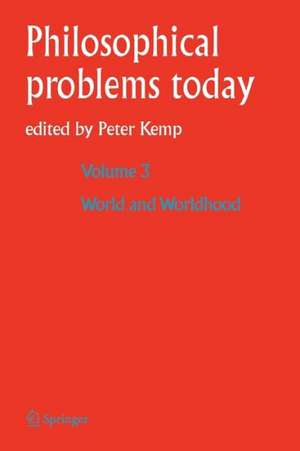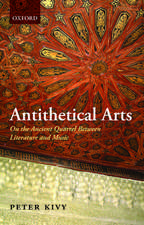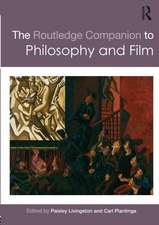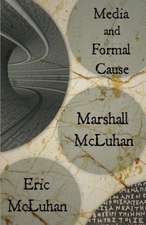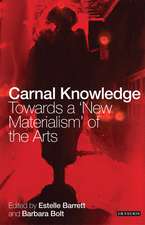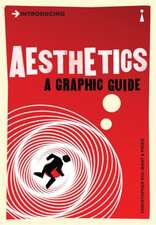World and Worldhood / Monde et Mondanéité: Philosophical Problems Today, cartea 3
Editat de Institut International de Philosoph, Peter Kempen Limba Engleză Paperback – 28 oct 2010
| Toate formatele și edițiile | Preț | Express |
|---|---|---|
| Paperback (1) | 636.45 lei 6-8 săpt. | |
| SPRINGER NETHERLANDS – 28 oct 2010 | 636.45 lei 6-8 săpt. | |
| Hardback (1) | 642.83 lei 6-8 săpt. | |
| SPRINGER NETHERLANDS – 10 dec 2004 | 642.83 lei 6-8 săpt. |
Preț: 636.45 lei
Preț vechi: 748.76 lei
-15% Nou
Puncte Express: 955
Preț estimativ în valută:
121.80€ • 132.26$ • 102.31£
121.80€ • 132.26$ • 102.31£
Carte tipărită la comandă
Livrare economică 23 aprilie-07 mai
Preluare comenzi: 021 569.72.76
Specificații
ISBN-13: 9789048167692
ISBN-10: 9048167698
Pagini: 216
Ilustrații: V, 209 p.
Dimensiuni: 160 x 240 x 11 mm
Greutate: 0.31 kg
Ediția:2004
Editura: SPRINGER NETHERLANDS
Colecția Springer
Seria Philosophical Problems Today
Locul publicării:Dordrecht, Netherlands
ISBN-10: 9048167698
Pagini: 216
Ilustrații: V, 209 p.
Dimensiuni: 160 x 240 x 11 mm
Greutate: 0.31 kg
Ediția:2004
Editura: SPRINGER NETHERLANDS
Colecția Springer
Seria Philosophical Problems Today
Locul publicării:Dordrecht, Netherlands
Public țintă
ResearchCuprins
The Globalization of the World.- L’Homme Du Monde.- Philosophy of Technology.- Economics.- La Technique D’aujourd’hui et Les Problémes D’esthétique.- Politics.- Reasonability and the Cosmopolitan Imagination: Arendt, Korsgaard and Rawls.
Textul de pe ultima copertă
In this book philosophers try to answer the following question: What is globalization and what does ‘globe’ or ‘world’ (monde) signify?
Rémi Brague returns to the Greek idea of the cosmos in order to track the worldhood (mondanéité) of the world, that is, the process by which the idea of the world is formed. Don Ihde shows how a world has developed, in which technologies are no longer considered neutral means serving the ends of human action, but become the very means by which people exist in the world. Vittorio Mathieu describes the economical world at two levels – that of the individual and that of society. Tomonobu Imamichi analyses the capacity of aesthetic experience to disclose a world other than the world of technological efficiency. Francisco Miró Quesada C. emphasises that the great political questions are not solvable without worldviews that express value systems. David Rasmussen describes sensus communis as a cosmopolitan concept, which founds a political globalization of the world. And Peter Kemp attempts to grasp the meaning of that globalization upon which the destiny of our planet depends.
Rémi Brague returns to the Greek idea of the cosmos in order to track the worldhood (mondanéité) of the world, that is, the process by which the idea of the world is formed. Don Ihde shows how a world has developed, in which technologies are no longer considered neutral means serving the ends of human action, but become the very means by which people exist in the world. Vittorio Mathieu describes the economical world at two levels – that of the individual and that of society. Tomonobu Imamichi analyses the capacity of aesthetic experience to disclose a world other than the world of technological efficiency. Francisco Miró Quesada C. emphasises that the great political questions are not solvable without worldviews that express value systems. David Rasmussen describes sensus communis as a cosmopolitan concept, which founds a political globalization of the world. And Peter Kemp attempts to grasp the meaning of that globalization upon which the destiny of our planet depends.
